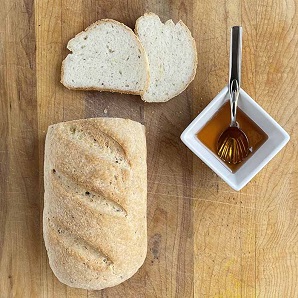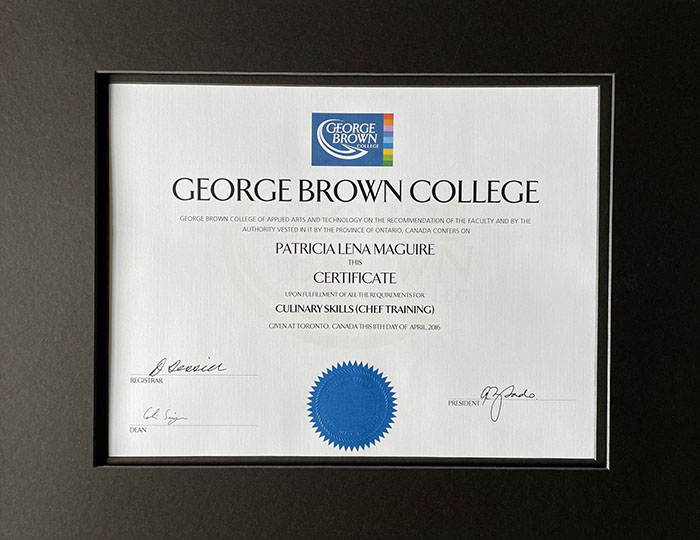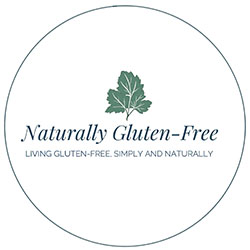- Home
- Living Gluten Free
- Self Diagnosis
Celiac Disease Self Diagnosis: Is Getting Tested Worth the Pain?
You haven’t felt right for a long time. Bloating, gas, diarrhea, constipation, brain fog, skin rash, nutrient deficiencies. Then late one night after way too much time on google, you come across the symptoms of celiac disease. “Could this be it? How would I know? I could try cutting out gluten and see if I feel better.”
Wait! The temptation for celiac disease self diagnosis is strong, but I’d like to encourage you to think twice.
Feeling Better Doesn’t Always Mean Celiac Disease
Celiac disease is a serious hereditary autoimmune condition. If you have celiac and you consume gluten, your immune system attacks your small intestine causing damage. Because of this damage, there can be weird symptoms that might not seem related. For example:
- infertility or repeated miscarriages
- brittle hair and nails
- cancer sores and dental enamel defects
- migraines
- painful swollen joints
Untreated celiac disease can increase the risk serious problems down the road like cancer, heart disease, osteoporosis, and nerve damage2.
But the story gets more complicated. Feeling better when you don’t eat bread or pasta, doesn’t mean you have celiac disease. You could have non-celiac gluten sensitivity (NCGS) which is much less severe. You may get gassy and crampy and may have bathroom issues with gluten, but it’s not an autoimmune attack. There is no long-term damage and no increased risk of serious health conditions.
How Celiac Disease and NCGS are Diagnosed
Your doctor can order celiac testing for you. A blood test to screen for antibodies comes first. If the bloodwork is positive, your doctor will schedule an endoscopy to look for damage to the small intestine and take a biopsy. If this is positive then you'll be diagnosed with celiac disease.
There is no test for NCGS. The only way to diagnose it is with an elimination diet1.
What’s Wrong with Celiac Disease Self Diagnosis? Why Not Just Go Gluten Free?
That’s a reasonable question. For both celiac disease and NCGS the treatment is the same; a gluten free diet. So why not go ahead and cut out gluten and if you feel better, stay on the diet?

You Need Gluten In Your System for an Accurate Test
At some point you will likely want to know for sure. You may decide that your celiac disease self diagnosis is not good enough. I'll get into the reasons shortly, but the point is, no gluten in your system means no gluten antibodies so you can’t get an accurate celiac test.
The Gluten Challenge is Hard, Really Hard!
This means you’ll have to do a gluten challenge. You’ll need to add gluten back into your diet for up to six weeks before testing. Once you’ve been gluten free for a while, going back on gluten can be very uncomfortable, even intolerable. Your symptoms will likely be much worse than before you went gluten free. This is a deal breaker for many people. They don't get diagnosed because they went gluten free too soon and adding gluten back in to their diet is too hard.
Reasons to Get a Formal Celiac Diagnosis
Follow Up Care
If you have celiac disease your doctor should monitor for things like nutrient deficiency, bone density and do follow up celiac screening to ensure your gluten free diet is working. Here is a good resource from Celiac Canada about follow up care. Even if you're not in Canada it's still good advice. Depending on your insurance, follow up care may be covered if you have a formal celiac diagnosis.
https://www.celiac.ca/healthcare-professionals/management/
Help with Your Gluten Free Diet
Depending on where you live or your insurance, the services of a registered dietician may covered. This isn't necessary for everyone, but if you're struggling to figure out what to eat to stay health and gluten free, a dietician can be helpful.
Help With the Cost of Gluten Free Food
Pin for Later
Depending on where you live, there may be some help with the cost of food. For example, UK offers some foods on prescription. Canada and the U.S. offer tax deductions.
Ruling Out Other Causes for Your Symptoms
If you do your own celiac disease self diagnosis, you could be missing something important. Your symptoms could point to something else that would be crucial to know about and to treat.
In fact, you might benefit from trying an AI health diagnosis tool like ChatGPT to help you uncover patterns and possible causes that your doctor hasn’t yet explored. Always work with with your doctor and bring any results to him or her for proper testing.
How Strict You Need to Be
With NCGS you may be able to tolerate a little gluten. If there is something you desperately want and the symptoms are mild you may decide to cheat. That’s up to you. With celiac disease it’s not only about how you’ll feel in the hours and days to come, it's about intestinal damage and serious health problems down the road. Cheating is not an option.
Intolerances May Be Temporary, Celiac Disease is Not
Over time, food sensitivities can resolve themselves. This means NCGS may or may not be permanent and you may want to try a little gluten to see what happens. Celiac disease is for life and there is no “trying a little”. You need to be strict about your diet or you could be causing serious problems.
Confidence That What You Have is Real
This might be the most important reason. There will be times when you'll be tempted to cheat on your diet. You'll second guess yourself: "Maybe gluten isn't my problem". There will be people in your life who will question you and be unsupportive, "you're just a picky eater", "come on, a little won't hurt", "oh you're one of those", "you're just looking for attention", "was this diagnosed by a REAL doctor or one of those naturopathic quacks?". You'll get the eye roll. Someone may even try to slip you something with gluten to prove you're making it up. Don't get me wrong, most people are great and helpful and supportive but those few can make you question yourself. It's much easier to stand up for yourself if you have a formal diagnosis.
What If You’ve Already Gone Gluten Free and Now You Want to Get Tested?
Maybe you decided to try gluten free without knowing it would get in the way of future testing. Maybe your doctor even suggested you “try it out to see”. Not all doctors are well informed about celiac disease. Regardless of the reason, here you are. Should you go through the pain of a gluten challenge to get a formal celiac diagnosis? Is the pain worth it?
At this point it’s a personal choice. Only you can weigh the pros and cons and decide what’s best for you. We’ve discussed some reasons why it’s better to know for sure if you have celiac disease. Those are the pros. The only con, besides the potential cost and discomfort of the testing is the gluten challenge. It can be so difficult that many people simply can’t go through with it.
Treat it Like It's Real
My suggestion? It’s better to know so try the gluten challenge and see it through if you can. If you simply can’t do it, then treat your condition as though it is celiac. In other words, commit to your celiac disease self diagnosis and your gluten free diet. That means no cheating and no cross contamination. Err on the side of caution. After all, you might in fact have celiac and strict adherence to your gluten free diet is crucial.
Sources:
1. Gluten sensitivity testing. Beyond Celiac. (2021, November 18). https://www.beyondceliac.org/celiac-disease/non-celiac-gluten-sensitivity/gluten-sensitivity-testing/
2. Mayo Foundation for Medical Education and Research. (2023, September 12). Celiac disease. Mayo Clinic. https://www.mayoclinic.org/diseases-conditions/celiac-disease/symptoms-causes/syc-20352220#:~:text=There%27s%20no%20cure%20for%20celiac,symptoms%20and%20promote%20intestinal%20healing
















